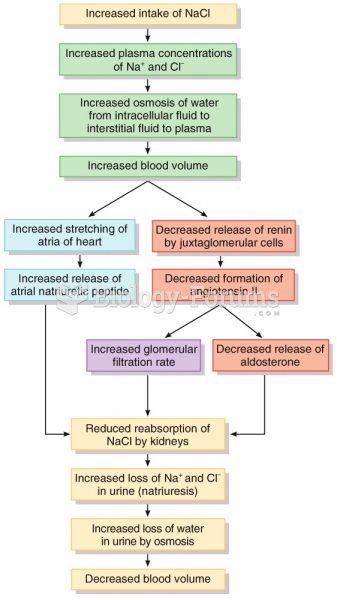|
|
|
There are 20 feet of blood vessels in each square inch of human skin.
A strange skin disease referred to as Morgellons has occurred in the southern United States and in California. Symptoms include slowly healing sores, joint pain, persistent fatigue, and a sensation of things crawling through the skin. Another symptom is strange-looking, threadlike extrusions coming out of the skin.
Acute bronchitis is an inflammation of the breathing tubes (bronchi), which causes increased mucus production and other changes. It is usually caused by bacteria or viruses, can be serious in people who have pulmonary or cardiac diseases, and can lead to pneumonia.
Human kidneys will clean about 1 million gallons of blood in an average lifetime.
The modern decimal position system was the invention of the Hindus (around 800 AD), involving the placing of numerals to indicate their value (units, tens, hundreds, and so on).
 Arthrocentesis. The aspiration of fluid is a common treatment for joint injuries resulting in inflam
Arthrocentesis. The aspiration of fluid is a common treatment for joint injuries resulting in inflam
 Three standard sizes of cuffs: a small cuff for a child or frail adult; a normal-sized adult cuff; ...
Three standard sizes of cuffs: a small cuff for a child or frail adult; a normal-sized adult cuff; ...




